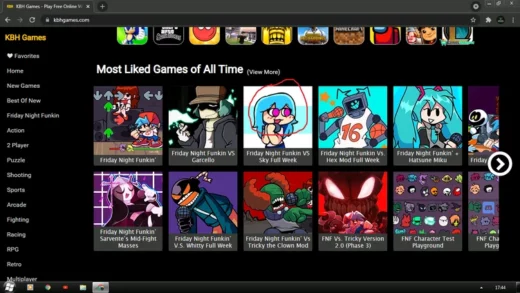Developing strong memory skills in early childhood lays the groundwork for academic success and lifelong cognitive health. For children aged 4 to 8, memory games are more than just fun—they’re powerful tools that enhance focus, sharpen attention, and foster overall brain development.
Whether you’re a parent, teacher, or caregiver, integrating memory-boosting activities into a child’s daily routine can make a significant difference.
In this article, we explore the best memory games for kids aged 4–8, from classic matching games to modern brain development apps. Each recommendation is backed by practical benefits and aligned with developmental milestones.
Why Memory Games Matter for Children
Between the ages of 4 and 8, children experience rapid brain development. This period is crucial for building the cognitive foundations that support critical thinking, language, and problem-solving. Memory games help enhance:
- Working memory, the ability to hold and use information
- Attention span, necessary for learning and task completion
- Cognitive flexibility, which allows kids to switch focus and adapt to new information
According to the Harvard Center on the Developing Child, practicing memory and attention through play helps strengthen neural connections that contribute to lifelong learning.
Top Matching Games That Improve Memory
Matching games are a timeless and engaging way to enhance memory skills. They teach children how to identify patterns, concentrate, and recall information.
1. Classic Memory Card Game
This game involves flipping over pairs of cards to find matches. It’s a simple yet effective way to build focus and improve short-term memory. Choose decks with kid-friendly themes like animals, colors, or cartoon characters to keep young players engaged.
2. Picture Bingo
A twist on the traditional bingo game, this version uses image cards instead of numbers. Kids must remember where they’ve seen specific pictures before to mark them on their boards. It’s perfect for group play and social interaction.
3. Match the Sound
Using animal or instrument sounds, kids try to match the sound to the correct image card. This variation strengthens both auditory and visual memory—skills essential for reading and comprehension.
Best Brain Development Apps for Kids 4–8
In today’s digital age, screen time can be educational when managed properly. Several brain development apps offer fun, interactive ways for children to train their memory and concentration.
1. Lumosity Kids
Specifically designed for young minds, Lumosity Kids features memory games, puzzles, and problem-solving challenges. The app adapts to the child’s skill level, ensuring a tailored learning experience.
2. Endless Memory by Originator
This app introduces kids to memory training through cute characters and vibrant animations. It improves pattern recognition, visual recall, and vocabulary in a playful setting.
3. Peekaboo Barn
Ideal for younger children in the 4–5 age group, Peekaboo Barn teaches animal names and sounds while strengthening memory and attention.
Offline Memory Games and Activities
Not all memory-boosting games require screens. In fact, traditional play can be equally beneficial—and sometimes even more effective for social and emotional learning.
1. Simon Says
This well-known game trains kids to listen carefully and remember instructions in order. It supports self-regulation, focus, and memory recall.
2. What’s Missing?
Place several objects on a tray. Let the child observe them for a minute, then cover the tray and remove one item. Ask the child to identify what’s missing. This exercise builds observational and recall skills.
3. Story Retelling
Read a short story together, then ask your child to retell it in their own words. This strengthens both verbal memory and comprehension.
Tips for Choosing the Right Memory Games
- Age-Appropriate Content: Ensure the game matches the child’s developmental stage.
- Visual & Auditory Stimulation: Look for games that involve both seeing and hearing cues.
- Progressive Difficulty: Choose games that grow with the child, offering new challenges as they improve.
- Minimal Distractions: Select games designed with clean interfaces and limited on-screen distractions.
Recommendation
Top Memory Games for 2–5 Year Olds to Boost Early Brain Skills
Top Google Memory Games To Improve Your Memory
8 Games to Improve Memory and Focus in Kids
Color Matching Games for Toddlers That Make Learning Easy
Best Puzzle Board Games for Kids That Build Brain Power
FAQs
Q1: How often should kids play memory games?
A1: 10–20 minutes of memory-focused play each day can be highly effective. Consistency is more important than duration.
Q2: Are digital games better than traditional games?
A2: Both have value. Digital games offer convenience and interactivity, while traditional games support social bonding and hands-on learning.
Q3: What signs show that a child is improving in memory?
A3: Improved attention span, quicker recall of facts, better following of instructions, and enhanced performance in school tasks are good indicators.
Q4: Can memory games help kids with attention issues?
A4: Yes. Many memory games are designed to train focus, which can be especially beneficial for children with ADHD or similar challenges.
Final Thoughts
Memory games are more than just playtime fillers—they are essential tools that support the cognitive growth of children aged 4–8.
Whether you’re choosing matching games, engaging with brain development apps, or creating offline challenges, the key is to make learning joyful and age-appropriate.
With regular play, children not only strengthen their memory but also build confidence, patience, and a love for learning.



